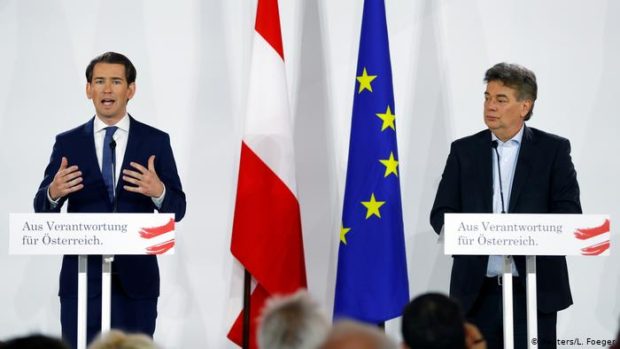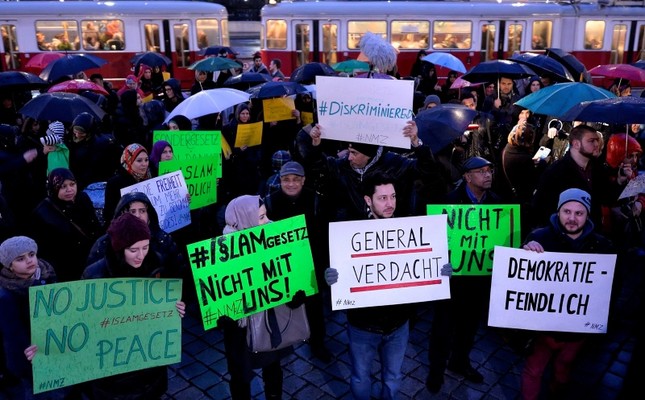As the year is still new, the new government program in Austria is drawing fire for its anti-Muslim, xenophobic slant. The program announced on Jan. 1 by the coalition of the center-right Austrian People’s Party (OVP) and the Green Party shows no change from the one applied by the previous government, say critics.
Last May, Austria called for early elections following numerous allegations of corruption and irregularities against the far-right Freedom Party of Austria (FPO) and its former leader Heinz Christian Strache.
Austrians, especially foreigners living in the country, welcomed the formation of a coalition government after the polls.
The Greens generally focus on environmental protection and climate change, advocate for more humanitarian laws on immigration and asylum, and take a more liberal attitude towards the protection of the rights of religious and ethnic minorities. This led many Austrians to believe a coalition including the Greens would lead to less Islamophobia and xenophobia.
Greens fall flat
The coalition government, established under the leadership of OVP leader Sebastian Kurz along with the Greens, proposes extending a headscarf ban, fighting “political Islam,” and extraordinary new security measures such as the detention of immigrants and refugees believed to have the potential to commit crimes without a court order, known as security imprisonment.
The Islamic Religious Authority of Austria (IGGO), considered the legal representative of approximately 800,000 Muslims in Austria, charged that that the new government takes a “hostile approach towards Muslims.” The IGGO also said that it was “a disappointment” to find the Greens’ anti-discriminatory attitude absent from the program.
The previous government on issues related to immigration and Muslims.
Sabine Matejka, head of the Austrian Association of Judges, said that security imprisonment would harm society if it is implemented without a constitutional amendment.
Government program ‘complete disappointment’
Martha Bissman, an independent member of Austria’s parliament, told Anadolu Agency that the coalition talks between the two parties have an important role. They could help correct the past mistakes of Kurz, who has made common cause with the extreme right, and prevent the establishment of a second extreme right-wing government, Bissman said.
“The rigorous program of the far-right FPO was continued. Right-wing populist incitement towards Muslims continued,”
Although the Green Party, which was out of parliament in the 2017 elections, will champion action on environmental and climate issues, Bissman said the government’s program is “a complete disappointment”. “The rigorous program of the far-right FPO was continued. Right-wing populist incitement towards Muslims continued,” Bissman said. “While political Islam was demonized as the greatest enemy of the republic, the headscarf ban continued to be used as political fodder and was used as a casus belli,” she added.
Bissman stressed that the term “political Islam” is used by far-right politicians without any definition. “Who are those political Islamists?” Bissman asked, warning of the “serious danger” of using the term “unless it is fully defined,” as it could “open the door to mass slander and defamation campaigns for an entire society.”
Program unmoved on immigration, Muslims
Farid Hafez, a political scientist at Washington’s Georgetown University, told Anadolu Agency that the current government has almost the same program as the previous government on issues related to immigration and Muslims. He added that it aims to impose even more stringent measures in some issues including religious classes and Muslim-related foundations.
“If the regulations in the government program are implemented, anti-Islamic policies will be justified by a party like the Greens — pro-immigrant and libertarian — which is much worse,” he added.

















No Comments